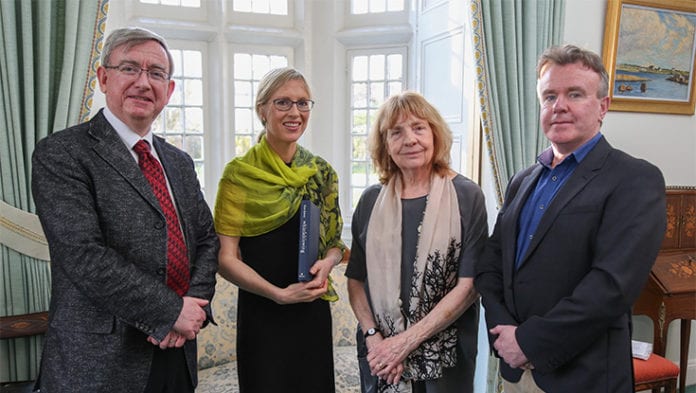Despite their contributions to society when exposing wrongdoing in banks, corporations, or government bodies, it’s an unfortunate reality that whistleblowers are as likely to end up as martyrs as heroes.
NUIG Professor of Business Kate Kenny’s new book Whistleblowing: Toward a New Theory explores how society often fails to protect whistleblowers who risk everything to expose corruption.
This clear-eyed examination looks in particular at the financial industry, where a deeply embedded culture of corruption around the world has had disastrous consequences for us all as recently as the 2008 financial crisis and the recession that followed.
Introducing whistleblowers from the United States, the United Kingdom, Switzerland, and Ireland working at companies like Wachovia, Halifax Bank of Scotland, and Countrywide–Bank of America, Whistleblowing suggests practices that would make it less perilous to hold the powerful to account and would leave us all better off.
Instead, even when people’s warnings aren’t ignored, they often find themselves punished within their workplace, isolated by the colleagues, and left with a career in tatters.
Kate Kenny is a Professor of Business and Society at NUI Galway where she researches how the behaviour of large organisations affects our daily lives as employees and citizens.
For this book she interviewed men and women who reported unethical and illegal conduct at major corporations in the run up to the 2008 financial crisis.
Paul Moore worked for HBOS bank in the UK where he blew the whistle on a dangerous sales culture. Eileen Foster was an executive vice president at Countrywide until she reported systemic home loan fraud. Olivia Greene disclosed wrongdoing in defense of a colleague at Irish Nationwide Building Society. And UK and US whistleblower, Martin Woods reported a series of money-laundering activities at Wachovia Bank.
“Genuine whistleblowers are often poorly served and supported by society,” Prof Kenny said, “I wanted to explore why this is so. Through hearing those who have spoken out, we might begin to re-frame accepted attitudes towards whistleblowers.”
The book was launched recently at the Whitaker Institute at NUI Galway, with an introduction from Dr Tom Clonan, one of Ireland’s most high profile whistleblowers on sexual violence in the Defence Forces, and Prof of Political Science and Sociology Ricca Edmondson.











